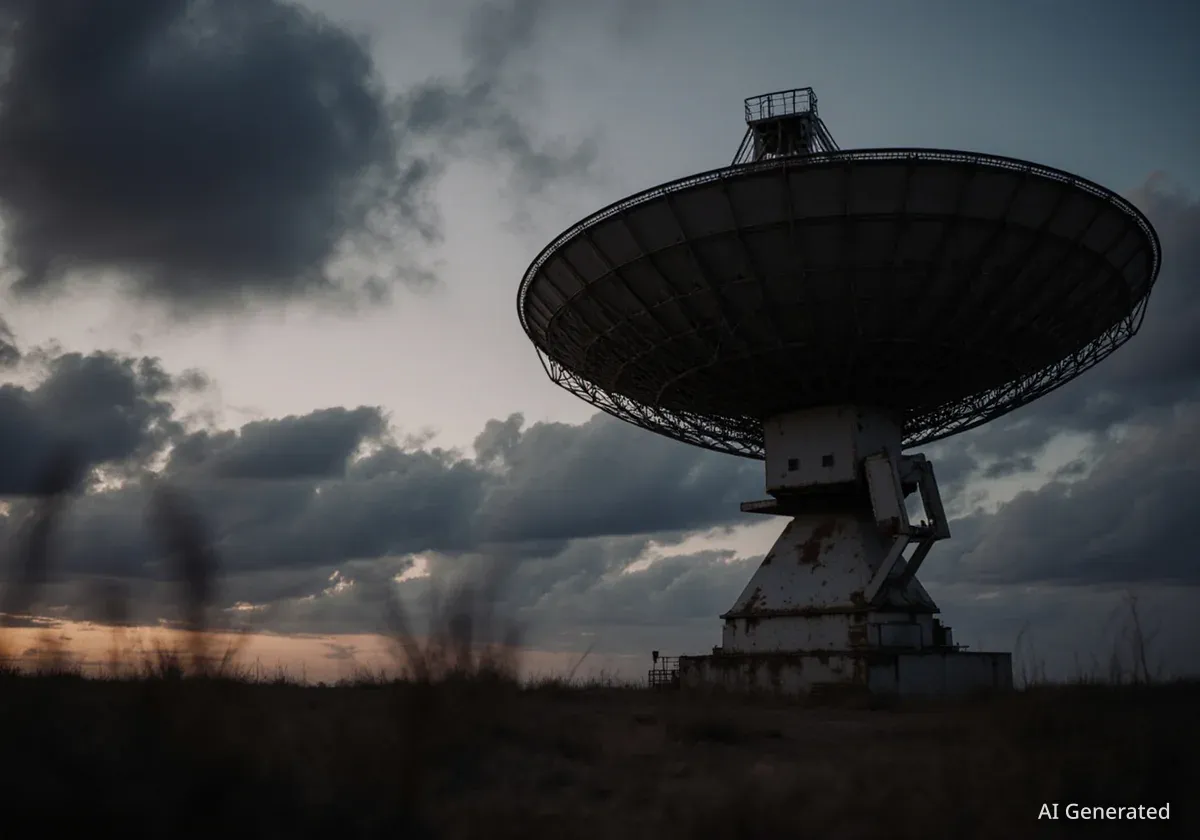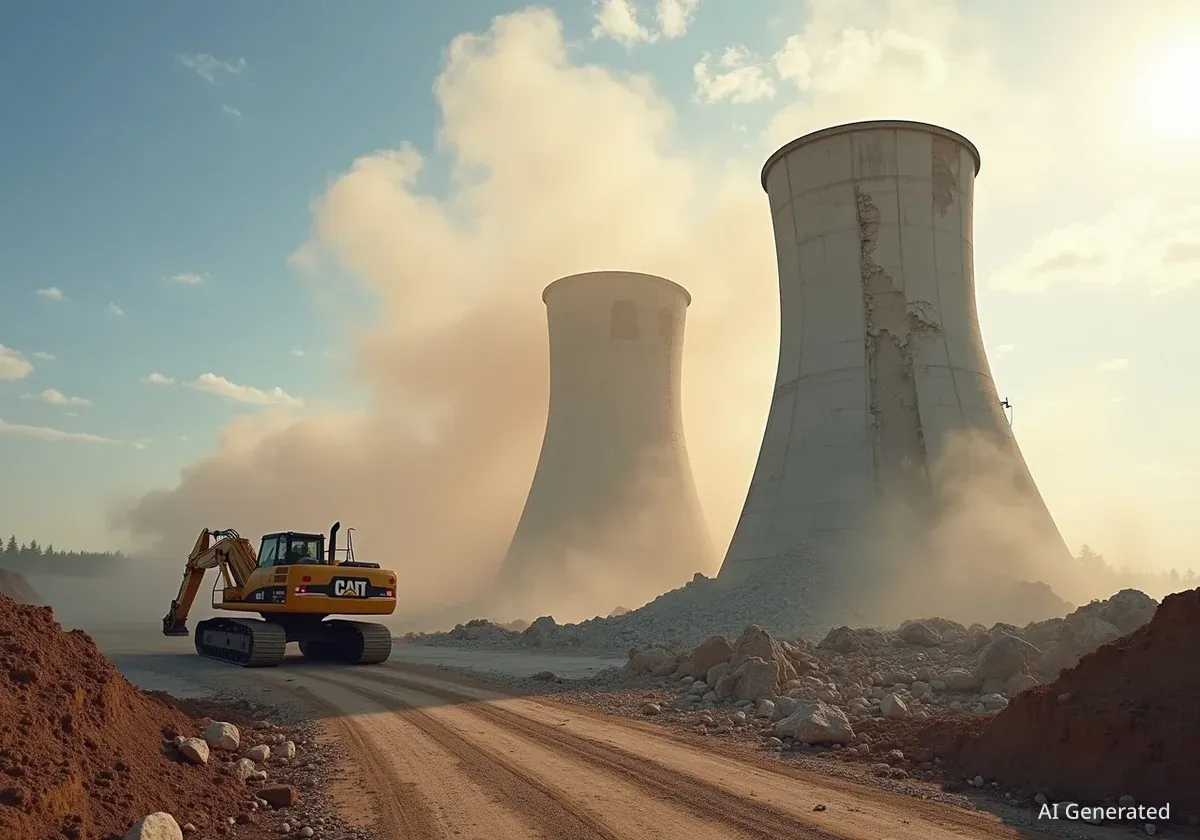The city of Huntsville officially recognized Edward Buckbee, a foundational figure in America's space program and a key architect of the U.S. Space & Rocket Center, during a city council meeting on Thursday. Buckbee, one of the last living members of the original space exploration team, was honored for his decades of service and contributions that have shaped both the city's identity and global space education.
The presentation, led by Councilman David Little, celebrated Buckbee's extensive career, which has been intertwined with Huntsville's rise as the "Rocket City." His work has left an indelible mark on the community and inspired millions worldwide through programs he helped create.
Key Takeaways
- Edward Buckbee, a founding director of the U.S. Space & Rocket Center, was formally honored by the Huntsville City Council.
- His career began in 1959 at NASA's Marshall Space Flight Center, working alongside pioneers like Dr. Wernher von Braun.
- Buckbee was appointed the first director of the U.S. Space & Rocket Center in 1970, a role he held until 1994.
- He is the founder of the globally recognized U.S. Space Camp and Aviation Challenge programs.
- As the last surviving member of “The Real Space Cowboys,” he represents a direct link to the dawn of the Space Age.
A Legacy Forged in the Space Race
Edward Buckbee's journey began at a pivotal moment in history. He joined NASA at the Marshall Space Flight Center in 1959, placing him at the epicenter of the race to the moon. Working with the legendary Dr. Wernher von Braun, Buckbee was part of the brilliant team that developed the rockets that would eventually carry astronauts beyond Earth's atmosphere.
His transition from direct involvement in the space program to public education marked a new chapter. In 1970, Dr. von Braun personally appointed Buckbee to become the first director of the U.S. Space & Rocket Center. This move was crucial in preserving the history of the space program and making it accessible to the public.
From Rocket Development to Public Inspiration
The U.S. Space & Rocket Center was envisioned as more than a museum. Under Buckbee's leadership, it became a dynamic institution dedicated to inspiring the next generation of scientists, engineers, and explorers. His work ensured that the achievements of the Apollo era would not just be remembered but would also serve as a catalyst for future innovation.
The Birth of Space Camp
Perhaps Buckbee's most enduring legacy is the creation of the U.S. Space Camp. He founded the program with the vision of giving young people a hands-on, immersive experience in science, technology, engineering, and math (STEM). What started as an innovative idea has since grown into a global phenomenon.
Since its inception, Space Camp and its counterpart, the Aviation Challenge, have hosted students and educators from more than 70 countries. The programs have become a rite of passage for many who later pursued careers in aerospace and technology. The impact of this initiative on STEM education is immeasurable, having sparked a passion for exploration in countless individuals.
"The vision was to create an experience that would motivate and educate, to let young people touch the future," is a sentiment often attributed to the program's founding principles.
Buckbee's commitment to education and preservation extended beyond Space Camp. He also co-founded the U.S. Astronaut Hall of Fame alongside famed astronauts Wally Schirra and Alan Shepard, further cementing the legacy of America's space heroes.
A Global Educational Impact
- Global Reach: Space Camp has welcomed participants from over 70 nations.
- Decades of Inspiration: The program has been operating for over 40 years, influencing multiple generations.
- Career Catalyst: Many alumni have gone on to work for NASA and other leading aerospace organizations.
A Living Link to History
The honor bestowed upon Buckbee by the Huntsville City Council carries special weight because of his unique position in history. He is the only surviving member of a group known as “The Real Space Cowboys,” a team of pioneers who laid the groundwork for America’s ventures into space.
His presence offers a direct connection to a transformative era, a time of bold ambition and unprecedented technological achievement. The ceremony at City Hall was not just a recognition of past accomplishments but a celebration of a living legacy that continues to shape Huntsville's identity and future.
Councilman David Little, who made the presentation, highlighted Buckbee's role in establishing Huntsville as a global leader in space exploration and education. The honor serves as a reminder of the foundational work that enabled the city's current and future contributions to the aerospace industry.
Huntsville's Enduring Space Identity
The recognition of Edward Buckbee is a reflection of Huntsville's deep-rooted connection to the space program. From the early days at Marshall Space Flight Center to the ongoing work that supports modern missions, the city's history is inextricably linked with the stars.
Buckbee's efforts to build the U.S. Space & Rocket Center and establish Space Camp were instrumental in translating technical achievements into public pride and educational opportunities. These institutions are now cornerstones of the community, drawing tourists from around the world and fostering a local culture of innovation.
As Huntsville continues to play a vital role in the next chapter of space exploration, including missions to the Moon and Mars, the foundation laid by pioneers like Edward Buckbee remains more important than ever. His life's work ensures that the spirit of discovery that defined the Apollo era will continue to inspire generations to come.





